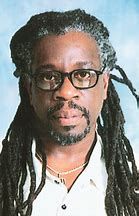Mutulu Shakur
By Akinyele Umoja
This article was originally published in Black Agenda Report on July 12.
Mutulu Shakur passed away [on July 6] just seven months after being paroled. Like other political prisoners he was released only when he was terminally ill. The U.S. has more political prisoners and incarcerates them for 30, 40, 50, and even 60 years, far longer than any other country.
The New Afrikan Independence Movement and revolutionary Pan-Afrikanists salute our freedom fighter, Dr. Mutulu Shakur, who joined the Ancestors on July 7, 2023. Dr. Shakur was a grassroots organizer, teacher, soldier, anti-repression activist, healer, and unifier of the youth and street forces (whether in the community or inside prison walls).

Dr.Mutulu Shakur
Dr. Shakur defined himself as a revolutionary nationalist, Pan-Afrikanist, and anti-imperialist. He joined the Revolutionary Action Movement (RAM) as a teenager in 1966. He was also a signer of the Declaration of Independence of the Provisional Government of the Republic of New Afrika (PGRNA) in 1968 and a founding member of the New Afrikan People’s Organization (NAPO) in 1984.
Dr. Shakur lived underground for four years due to his involvement in the New Afrikan Freedom Fighter wing of the Black Liberation Army (BLA). Dr. Shakur was captured on February 12, 1986, and convicted on conspiracy charges that included revolutionary acts of expropriation of capitalist institutions to support movement institutions, including armed defense capacity, providing material support to the Afrikan liberation struggle (particularly in Zimbabwe). The imperialist prosecution also included the 1979 liberation of freedom fighter Assata Shakur from imprisonment in the charges against him.
During his captivity in federal prisons, Dr. Shakur organized and provided political education and health care to his fellow prisoners and continued to be a human rights advocate. Dr. Shakur continued to be a target of political repression during his captivity. He was constantly harassed and unjustly segregated from other prisoners, despite his work to bring peace, literacy, and end violence in prisons he was held in.
The conditions of his captivity significantly compromised his health. He battled strokes, COVID-19 and cancer as a result of his confinement and isolation. Dr. Shakur was released from captivity in December 2022 due to a vigorous campaign for compassionate release by grassroots activists, artists, clergy, elected officials, and academics. He continued to advocate for the national liberation of New Afrika, the freedom of political prisoners, and people’s medicine in the last months of his life. Dr. Shakur also championed the leadership of women in the national liberation and human rights struggle.
Dr. Shakur’s political legacy must include the fight against political repression and state violence. He taught much of the Black Liberation Movement about political repression as the Director of the National Task Force for Cointelpro Litigation and Research. He also fought for the release of the Wilmington 10, Imari Obadele and the Republic of New Afrika 11, Assata Shakur and other BLA prisoners of war, and Geronimo ji Jaga (Pratt). We must continue to challenge political repression and call for the freedom of the movement’s political prisoners as the state intensifies its criminalization of our resistance.
Mutulu Shakur
Live like him
Dare to Struggle
Dare to Win
Free the land
Free em all
Akinyele Umoja is a scholar-activist and author of We Will Shoot Back (NYU Press, 2013) and co-editor of the “Black Power Encyclopedia: From ‘Black is Beautiful’ to Urban Uprisings” BLACK POWER ENCYCLOPEDIA (Greenwood, 2018)
You can Read more on Mutulu Shakur’s contribution to revolutionary medical care and his work at Lincoln Hospital here (originally published August 4, 2021). wwp.pub/mutulu

